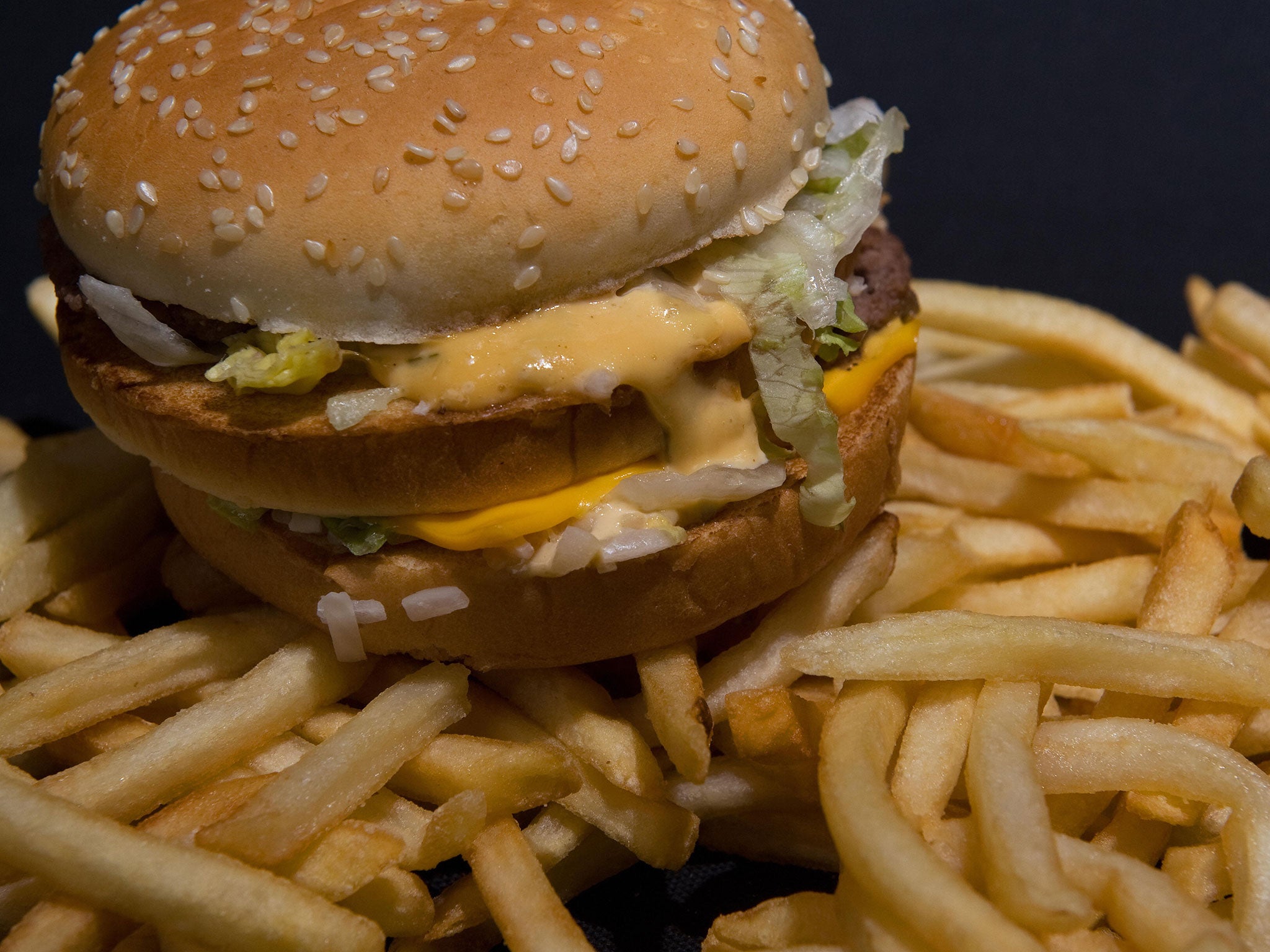How much exercise it takes to burn off junk food including Big Macs, fries and chocolate
A moment on the lips doesn't mean a lifetime on the hips...

It’s the night of the annual office Christmas party, you’ve already eaten what feels like your weight in roast potatoes and necked more than a few mulled wines: you've come this far, so what harm can cramming a burger into your mouth at the bus stop really do?
Around eight flat dumbbell presses at the gym is the answer according to a new infographic aiming to help people navigate the pitfalls of excess and emphasies that moderation is the key to staying healthy.
The graphic and accompanying video by Buddy Loans states that the recommended daily calorie intake for men is 2,500 and 2,000 for women.
At 490 calories, scoffing a Big Mac from McDonald's would take up 19.6 per cent of a male’s daily intake daily and 24.5 per cent of a woman’s – requiring 42 or 51 minutes of cardio to burn off, respectively.
But the added sting comes in the fact that the 215g burger contains 24 grams of fat: above the 17.5g of fat per 100g threshold that the NHS classes as "high".
A portion of large French fries will meanwhile require 40minutes of cardio for men and 48 minutes for women to burn off.
Those who can’t resist tucking into a box containing three pieces of KFC fried chicken on the queue for the taxi will need to exercise for 63 minutes or 75 minutes to burn off the 726 calories and 42g of fat, according to the graphic.
Coming out comparatively saintly, it would take between 21 and 25 minutes to burn off a 45g bar of Cadbury’s Dairy Milk which contains 14g of fat.
The inforgraphic was published after a study concluded that fast food and fizzy drinks have been vilified to the possible detriment of public health. Researchers at Cornell University found that eating more portions of junk food made no difference to the waistlines of most people.
They instead suggested that people should focus on the number of calories they consume. Researchers made their findings by analysing American data between 2007 and 2008 on what 5,000 people had drunk and eaten on two randomly selected days.
"Just because those things can lead you to get fat doesn’t mean that’s what is making us fat," said Professor David Just who co-led the study.
"By targeting just these vilified foods, we are creating policies that are not just highly ineffective, but may be self-defeating as it distracts from the real underlying causes of obesity."
However, Stacey Lockyer from the British Nutrition Foundation told The Independent at the time that she agreed that weight management depends on the number of calories we consumer, but added that "people, particularly when they are overweight or obese, underreport actual intake”.
This meant that the dietary data at the centre of the study could easily be flawed, she said.
Join our commenting forum
Join thought-provoking conversations, follow other Independent readers and see their replies
Comments
Bookmark popover
Removed from bookmarks